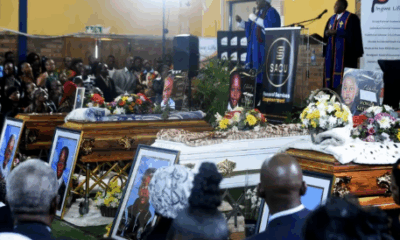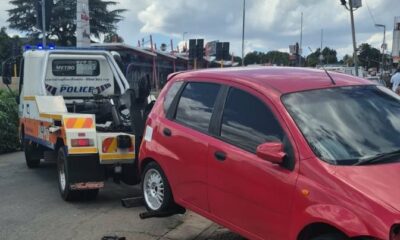News
The ‘Mother of All Strikes’: South African E-Hailing Drivers Demand Change

A Growing Crisis in South Africa’s E-Hailing Industry
In the latest chapter of South Africa’s ongoing transport struggles, e-hailing drivers across the country are preparing for a massive national strike. The National E-Hailing Federation of South Africa (NEFSA) has issued a stern warning, confirming that a nationwide shutdown is imminent. This follows protests in Johannesburg, where Uber and Bolt drivers have voiced frustration over low pay and unmanageable working conditions.
Elijah Uhuru Lekgowane, President of NEFSA, has stated that the time for action has come. Drivers are determined to be heard, and they are willing to shut down services until their demands are met.
A Call for Fair Pay and Better Treatment
The issues plaguing the e-hailing industry in South Africa are not new. Over the years, drivers have continually organized protests to push for higher pay and fairer working conditions. But despite their growing role in South Africa’s transportation ecosystem, drivers feel increasingly exploited.
Lekgowane points to a 35% slashing of fares since 2016 as a major reason for the unrest. He adds that Uber and Bolt drivers are facing unjust deactivations and being penalized for simply protesting. “Drivers are deactivated without due process, and many are being forced to phase out their vehicles, even if they still owe banks on car loans,” Lekgowane explains. “This is simply unfair.”
The truth is, e-hailing services have become a lifeline for many South Africans, especially in cities where public transport is limited and owning a vehicle is out of reach for most people. Yet, while the demand for rideshare services has skyrocketed, drivers say the platforms are squeezing their earnings and pushing them to the brink.
Unreasonable Policies and Exploitative Conditions
One of the most contentious issues is the forced phasing out of vehicles older than five years. Lekgowane argues that this policy is not only unreasonable but also detrimental to the financial stability of many drivers who are still paying off car loans. For many, the idea of upgrading their vehicle is simply unattainable.
At the heart of the strike preparations is NEFSA’s demand for a comprehensive restructuring of the pricing index. Drivers are demanding a fairer split and an end to the practices that keep their paychecks razor-thin. The federation is also calling for a halt to the harassment and deactivation of drivers who take part in protests, something that has become all too common.
The Role of the South African Government
The government, according to NEFSA, is not doing enough to protect the workers in this sector. Lekgowane has expressed his frustration with the government’s involvement, suggesting that there is a hidden agenda at play between e-hailing companies and those in power.
“We believe the government is complicit in this,” he says. “It seems they are working with the companies against us, rather than ensuring that the conditions of the drivers are protected.”
What’s at Stake for Drivers and Passengers?
The impact of these conditions on drivers is far-reaching. Many drivers have shared stories of sleeping in their cars, waiting for work at ungodly hours, just to scrape together enough to support their families. The stress, fatigue, and financial hardship are becoming unsustainable.
But it’s not just the drivers who will be affected by the upcoming strike. Johannesburg residents, and others in South Africa’s major cities, will need to plan ahead for alternative transport options. With Uber and Bolt set to come to a halt, it could create chaos for those relying on rideshare services to commute, run errands, or get home after a night out.
What Comes Next?
As the planned strike draws nearer, drivers remain steadfast. NEFSA is preparing for the “mother of all strikes,” aiming to consolidate efforts from all corners of the country. This coordinated, national protest marks a shift from previous regional actions.
When asked about the exact timing of the strike, Lekgowane said that a meeting to coordinate the national effort is imminent. While the exact date is yet to be confirmed, the message is clear: the strike is coming, and it will shake the nation.
The question now is how long the companies and government can ignore the cries for help from the very drivers who make their services possible. If things don’t change soon, the e-hailing industry in South Africa may be in for one of its most disruptive moments yet.
Time to Take Action
South Africa’s e-hailing crisis is far from over, and the stakes could not be higher. As Uber and Bolt drivers prepare for a national strike, they are calling for fairer pay, better treatment, and more reasonable policies from the platforms and government. Whether or not their demands are met remains to be seen, but one thing is certain: the future of e-hailing in South Africa hangs in the balance.
Source:Business Tech
Follow Joburg ETC on Facebook, Twitter , TikTok and Instagram
For more News in Johannesburg, visit joburgetc.com



























